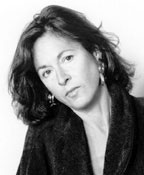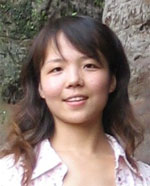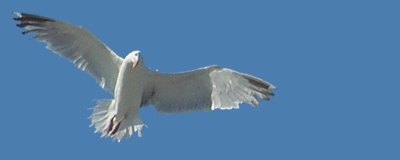
Louise Glück
路易丝-格丽克
  Louise Glück was born in New York City in 1943 and grew up on Long Island. She is the author of numerous books of poetry, most recently, Averno (2006), a finalist for the 2006 National Book Award in Poetry. Her other books include Meadowlands (1996); The Wild Iris (1992), which received the Pulitzer Prize and William Carlos Williams Award. She also received fellowships from the Guggenheim and Rockefeller Foundations, and from the NEA. She was the Library of Congress's twelfth Poet Laureate Consultant in Poetry. She is a writer-in-residence at Yale University. Louise Glück was born in New York City in 1943 and grew up on Long Island. She is the author of numerous books of poetry, most recently, Averno (2006), a finalist for the 2006 National Book Award in Poetry. Her other books include Meadowlands (1996); The Wild Iris (1992), which received the Pulitzer Prize and William Carlos Williams Award. She also received fellowships from the Guggenheim and Rockefeller Foundations, and from the NEA. She was the Library of Congress's twelfth Poet Laureate Consultant in Poetry. She is a writer-in-residence at Yale University.
路易丝-格丽克,1943年4月出生于纽约,在长岛长大。目前出版了十二本诗集,为她赢得荣誉无数。其中,《野鸢尾花》(The Wild Iris)获1993年普利策诗歌奖。《阿基里斯的胜利》(The Triumph of Archillis)获国家图书评论奖。另有诗集《十月》《人生的七个阶段》《新生》《牧场》《亚拉腊山》《递减的数字》《沼泽地上的房子》《初生》等以及诗学文集《证据和推论:诗学随笔》。2001年耶鲁大学授予她博林根诗歌奖。她曾任2003-2004年第十二届美国桂冠诗人。现为耶鲁大学驻校作家。
|

|

译者
Translator
安芳
An Fang
 
河南洛阳人。1981年生。现任四川外语学院成都学院英语教师。曾获第十九届“韩素音青年翻译奖竞赛”(汉译英组)二等奖、“译林翻译新人奖”(第四期)一等奖。
An Fang was born in 1981 in Luoyang, Henan Province. She is now an English teacher in Chengdu Institute, Sichuan International Studies University. She has won the second prize in the 19th Han Suyin Award for Young Translators and the first prize in the 4th Yilin Award for New Translators.
|
The light stays longer in the sky, but it's a cold light,
it brings no relief from winter.
My neighbor stares out the window,
talking to her dog. He's sniffing the garden,
trying to reach a decision about the dead flowers.
It's a little early for all this.
Everything's still very bare—
nevertheless, something's different today from yesterday.
We can see the mountain: the peak's glittering where the ice catches the light.
But on the sides the snow's melted, exposing bare rock.
My neighbor's calling the dog, making her unconvincing doglike sounds.
The dog's polite; he raises his head when she calls,
but he doesn't move. So she goes on calling,
her failed bark slowly deteriorating into a human voice.
All her life she dreamed of living by the sea,
but fate didn't put her there.
It laughed at her dreams;
it locked her up in the hills, where no one escapes.
The sun beats down on the earth, the earth flourishes.
And every winter, it's as though the rock underneath the earth rises
higher and higher and the earth becomes rock, cold and rejecting.
She says hope killed her parents, it killed her grandparents.
It rose up each spring with the wheat
and died between the heat of summer and the raw cold.
In the end, they told her to live near the sea,
as though that would make a difference.
By late spring she'll be garrulous, but now she's down to two words,
never and only, to express this sense that life's cheated her.
Never the cries of the gulls, only, in summer, the crickets, cicadas.
Only the smell of the field, when all she wanted
was the smell of the sea, of disappearance.
The sky above the fields has turned a sort of grayish pink
as the sun sinks. The clouds are silk yarn, magenta and crimson.
And everywhere the earth is rustling, not lying still.
And the dog senses this stirring; his ears twitch.
He walks back and forth, vaguely remembering
from other years this elation. The season of discoveries
is beginning. Always the same discoveries, but to the dog
intoxicating and new, not duplicitous.
I tell my neighbor we'll be like this
when we lose our memories. I ask her if she's ever seen the sea
and she says, once, in a movie.
It was a sad story, nothing worked out at all.
The lovers part. The sea hammers the shore, the mark each wave leaves
wiped out by the wave that follows.
Never accumulation, never one wave trying to build on another,
never the promise of shelter—
The sea doesn't change as the earth changes;
it doesn't lie.
You ask the sea, what can you promise me
and it speaks the truth; it says erasure.
Finally the dog goes in.
We watch the crescent moon,
very faint at first, then clearer and clearer
as the night grows dark.
Soon it will be the sky of early spring, stretching above the stubborn ferns and
violets.
Nothing can be forced to live.
The earth is like a drug now, like a voice from far away,
a lover or master. In the end, you do what the voice tells you.
It says forget, you forget.
It says begin again, you begin again.
|
|
白昼渐渐变长,天光却依然是冷冷的,
丝毫没有缓和冬的严寒。
我的邻居望着窗外,
训斥着她的小狗。小狗呢,在花园里嗅来嗅去
想弄明白花儿是怎么枯萎的。
只是现在还早了点,
到处还是光秃秃的——
不过,每天都有新的变化。
你看那山峰:顶上的冰层映着光闪闪发亮。
山坡上雪化的地方,却裸露着岩石。
邻居呼唤着她的小狗,学着狗的叫声,一听就不像真的。
小狗很有礼貌;听到她的召唤,它抬起了头,
却没有动。于是她继续喊,
学狗叫没有成功,她也逐渐变回了人声。
她一辈子都梦想着住在海边,
但是命运未能让她如愿。
它嘲笑她的梦想,
将她囚禁在山里,从未有人逃脱出去。
烈日照射着大地,大地生机盎然。
每年冬天,地下的岩石都好像
越升越高,直到大地变成了岩石,冰冷而漠然。
她说希望害了她的父母,也害了她的祖父母。
它和每年的春小麦一起生长,
却在酷暑和严冬之间夭折。
最后,他们嘱咐她住在海边,
似乎这样就会有所改观。
到了晚春就爱唠叨的她,如今却只说两个字——
“从未”和“只有”,来表达被生活欺骗的感受,
从未有海鸥的欢歌,只有夏天蟋蟀和蝉的鸣唱,
只有田野的气息,而她渴望的却是
大海的气息,消亡的气息
夕阳西下,
田野的上空化成一抹浅浅的灰粉色。云彩像洋红和深红的绢丝。
大地上的每个角落都在瑟瑟作响,而非静止不动。
小狗也觉察到了这种骚动不安,它耳朵抽动着
走来走去,隐约想起往年也曾有
同样的喜悦。发现的季节
开始了。年年都是这些发现,小狗却感到
兴奋而新奇,不觉得受了骗。
我对邻居说,我们失去记忆时
也会如此。我问她可曾见过大海
她说,只在电影上,见过一次。
那是个忧伤的故事,一切都以失意告终。
爱人分手了。海水拍打着海岸,
前浪留下的痕迹被后浪抹掉,
永远没有累积,永远没有浪花叠着浪花,
永远没有遮风避雨的承诺——
大地在变化,大海永不变;
它不会撒谎。
你问大海,“你能为我许下什么承诺?”
它实话实说;它说“抹掉”。
小狗终于进屋了。
我们望着那一弯月牙,
起初很浅很淡,夜色越来越浓,
它也越来越亮。
很快就会有一片早春的天空,在倔强的羊齿丛和紫罗兰上
舒展开来。
凡事都无法催生。
现在的大地像一剂麻药,像爱人或主人的声音
来自远方。你终将听命于这声音。
它说忘了吧,你就忘却。
它说重新开始吧,你就重新开始。
|







